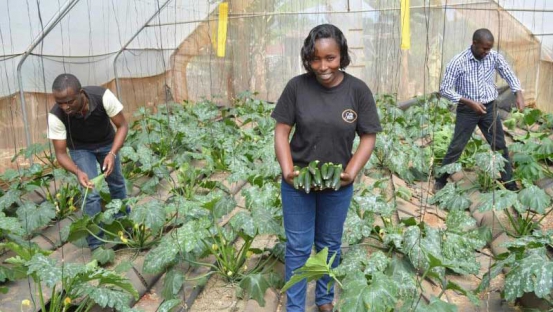
Tired of looking for elusive white-collar jobs, a group of young farmers decided to think out of the box. The 15-member group named ‘Esteem Eagles Welfare Youth Group’ started farming together. Initially it was a merry-go round, before they decided to pool resources and venture into greenhouse farming.
“We started out as a fun group doing picnics together. Since most of us did not have stable jobs, we decided to pool resources and focus on hydroponic farming because the bad soils could not allow us to do conventional farming,” says Stephen Kamau, a member. Hydroponics is a modern system of farming where plants are grown in liquid, sand, gravel with added nutrients but without use of soil. After deliberations the group approached the National Government’s Youth Fund in February 2014 for assistance.